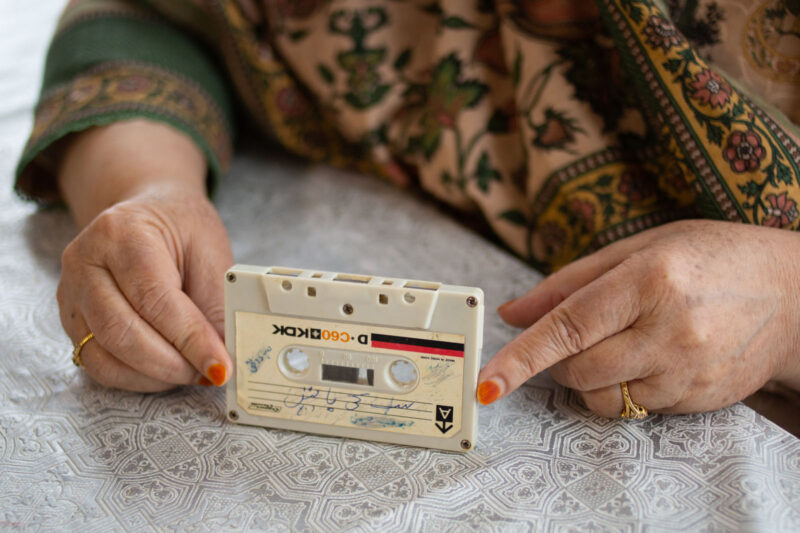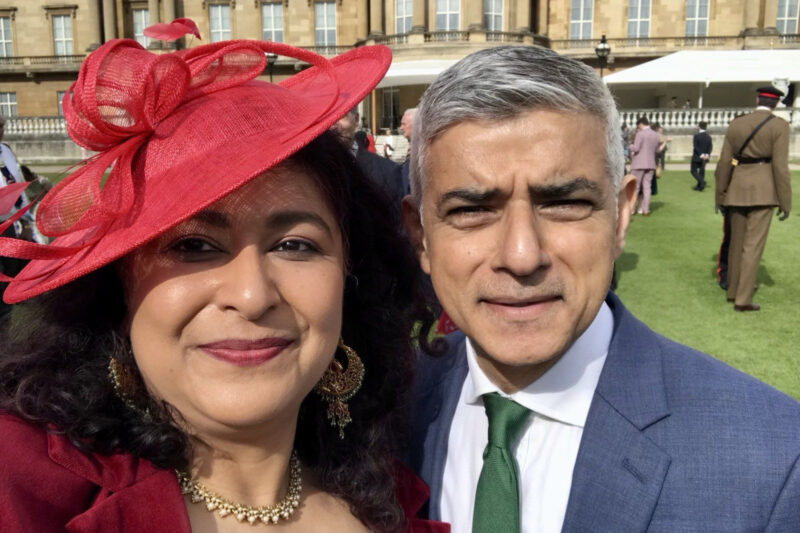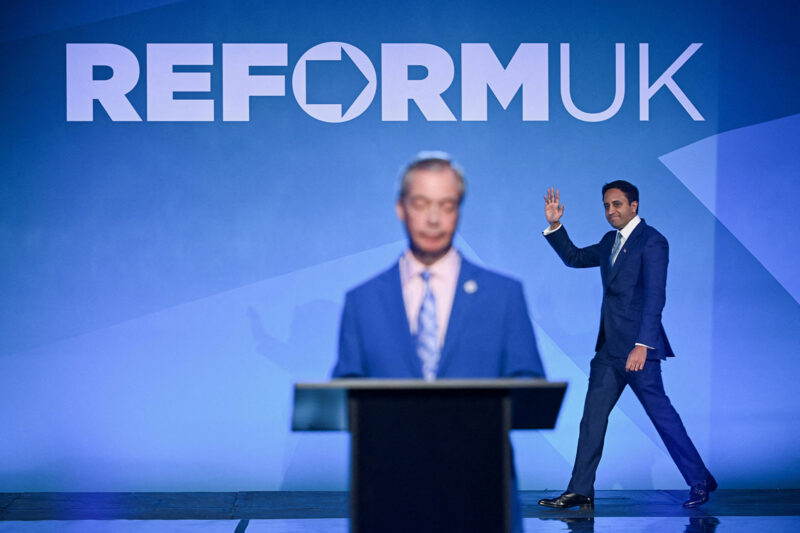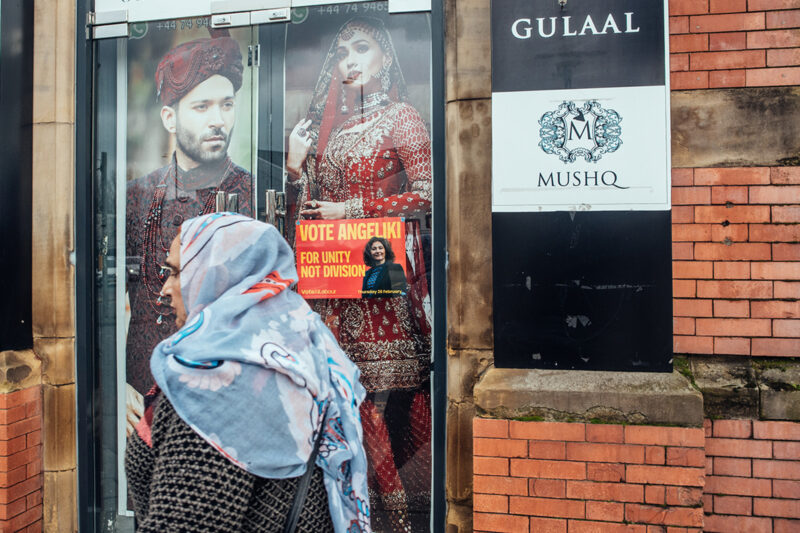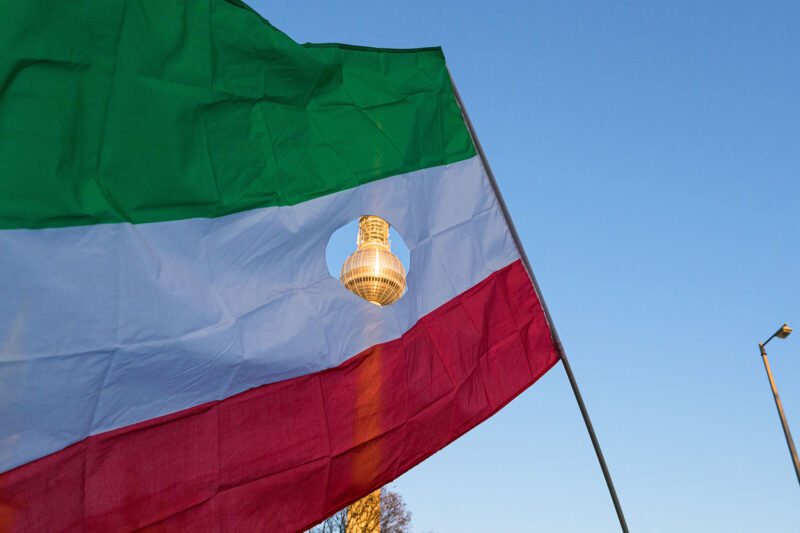Who is Anas Sarwar, Scottish Labour leader who called for Starmer to quit?
One of Britain’s most prominent Muslim politicians, Sarwar had previously been close to the prime minister
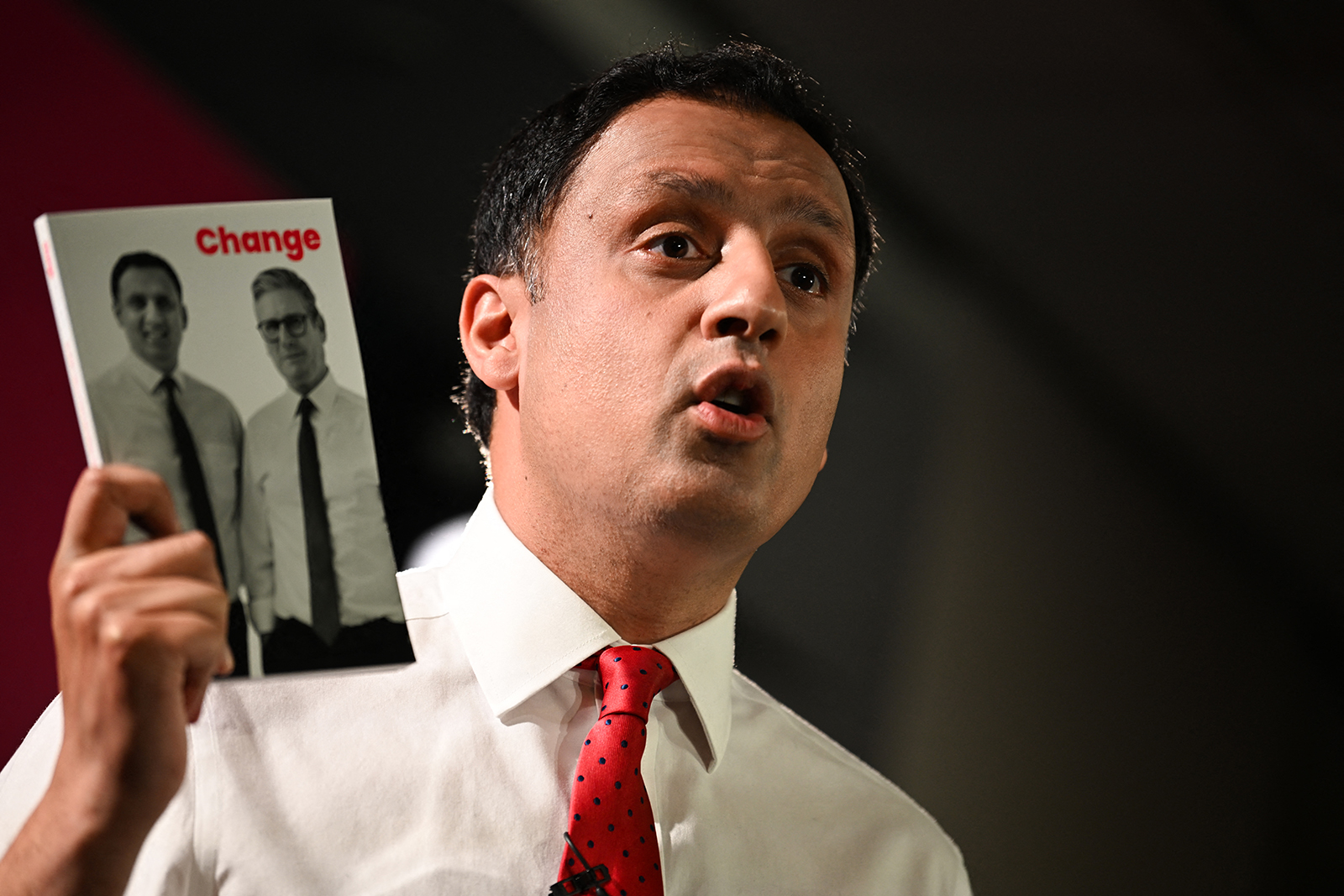
This profile was originally published in June 2024 ahead of the UK general election. We are republishing it in the wake of Anas Sarwar’s call for Keir Starmer to step down in the wake of the scandal over Peter Mandelson’s ties to Jeffrey Epstein.
In the National Galleries of Scotland, in the centre of Edinburgh, hangs a collection of formal family photographs showing members of the country’s small but important Pakistani community.
Proud parents sit in pristine suburban lounges alongside sons, daughters, uncles and aunts in sharp suits and impeccable sarees. Among them, one portrait stands out. At its centre, staring into the camera, are the father-and-son political team of Mohammad and Anas Sarwar.
In 2010, when the picture was taken, Anas had just become Labour MP for Glasgow Central, the Westminster seat his father had held since Tony Blair’s landslide 1997 election victory. Still in his 20s, he was already being talked about as a rising star within the party.
Fast-forward 14 years and much has happened in British politics. Today, aged 41, Sarwar is no longer an ambitious young backbencher. As leader of Scottish Labour and an MSP for the Glasgow region, he is now one of the most influential Muslim politicians in Britain.
When he strode on to the stage in Edinburgh on 18 June to launch Scottish Labour’s manifesto for the forthcoming UK general election, Sarwar had one concept he wanted to ram home again and again: change.
“It’s an opportunity to change Scotland for this generation and the next. It’s an opportunity we need to make sure we don’t miss,” he told the assembled crowd of invited journalists and activists.
With his crisp white shirt and assured manner, Sarwar is positioning himself as the only viable alternative to a Conservative party in meltdown across the UK and a Scottish National Party beset by scandal and crises, following a two-decade period of dominance.
When Sarwar took the helm of Scottish Labour in 2021, the party had hit rock bottom, reeling from defeats in both UK and Scottish elections. He had already tried for the leadership in 2017, but was beaten by left-winger Richard Leonard, who walked Labour into its lowest vote share in Scotland for almost a century.
For a directionless, internally divided party, well behind its main rivals, Sarwar emerged from a small pool of challengers as the best option for the top job. His persistence and ability to stay the course had finally paid off.
Labour is still a long way from its once-undisputed position as the majority voice in Scotland, but polls have put the party neck and neck or even ahead of its main rival, the SNP. In Scotland, the UK general election campaign is about once again casting Labour as the natural party of the country’s urban centres — and Sarwar as the safe pair of hands capable of bringing it back to power.
“The fact that Anas Sarwar chose to stick around, rather than pursue an alternative career, away from politics, says a lot about his determination to rebuild the party. Few other senior Scottish Labour figures have shown that kind of patience and willingness,” says Chris McCall, deputy political editor at the Daily Record newspaper.
“His first attempt to become leader was a failure. He also lost his seat as an MP in 2015. Those kinds of setbacks would cause many others to call time on their political careers. But they forced him to re-evaluate his own strengths and weaknesses as a politician.”
While tenacity has been vital to Sarwar’s rise, he also owes much to his father. As Britain’s first Muslim MP and a prominent figure in Pakistani domestic politics, Mohammad Sarwar, now 71, has forged a remarkable career for a farmer’s son from rural Punjab.
Coming to Scotland from Pakistan in the mid-1970s, he went from working in a supermarket to establishing a wholesale business that made him a millionaire and laid the foundations to build his family into a political powerhouse.
Winning a seat on the Labour-dominated Glasgow City Council in the 1990s, he used that position as a springboard to a safe seat in Blair’s government, representing what became the Glasgow Central constituency.
He did not stand in 2010, leaving the way clear for Anas to take over the vacant Labour candidacy at the age of just 27. Returning to Pakistan, Mohammad Sarwar embarked on a second career as a two-time governor of the Punjab province and a member of the national senate.
The story of the Glasgow businessman who became governor of Pakistan’s second-largest province is well known throughout the city, but his youngest son remains more of an enigma. People who have worked with Anas Sarwar speak of him as a polished political operator who wants to be both liked and viewed as a strong leader, while also holding a genuine desire for social change.
“It’s clear that he believes in family, and you can see how his experience of being raised with a strong Punjabi ethic of community paternalism, combined with his own desire for personal success, contributes to his politics,” one Labour insider told me.
Sarwar grew up in the southern Glasgow suburb of Pollokshields. On Albert Drive, the district’s main shopping street, halal butchers and travel agents offering discounted fares to Lahore sit alongside a branch of Islamic Relief, South Asian jewellery shops and wedding outfitters. A member of the Sarwar family has represented this epicentre of Scotland’s Pakistani community, in one form or another, for more than three decades.
“Spend a few days here and you will start to think you are in Pakistan,” jokes a baker at the Nafees confectionery shop as he packs halwa into boxes.
In the 1970s, when Mohammad Sarwar arrived in Glasgow, the city was at a low ebb. Thousands of residents were leaving and the traditional industries of shipbuilding and heavy engineering had entered a sharp decline.
Many South Asian immigrants settled in the grid of streets around Pollokshields’ crumbling Victorian squares, once-prosperous areas that had seen much of their wealth leave. It was into that changing community that Anas Sarwar was born in 1983.
Just around the corner from the rows of Pakistani shops stands United Wholesale, the Sarwar family business. When I walk inside, staff are chatting away in Punjabi between stacks of biscuits, soft drinks and cigarettes.
No one wants to talk about the election, but there are warm words about the Sarwar family’s community spirit and generosity. In addition to being a shareholder in United Wholesale, Anas has also served as president of the Sarwar Foundation, an aid organisation founded by his father to support rural development and healthcare in Pakistan.
Like his elder brothers, Asim and Athif, Anas was educated at the private Hutchesons’ Grammar School in the leafier, southern end of Pollokshields. He then attended the University of Glasgow, but instead of reading politics or history, as many aspiring Scottish politicians do, he enrolled in dental school. It was there — so the joke runs — that he developed his winning smile.
Scotland holds domestic elections in 2026 and, under parliamentary convention, Sarwar needs his party to win one more seat than its main rivals to become first minister. For now, though, he does not have to do much. Scottish Labour is not looking to inspire devotion from voters in the way the SNP has for so many years. Instead, its plan appears to be to simply show itself and its leader to be a safe and competent alternative to the current ruling party.
“Sarwar’s emergence suggests a Scottish Labour party that is keen to stay on the right side of the London leadership, is pragmatic to a fault, and which senses that the independence moment has passed for the time being,” says Dr Sean Kippin, a politics lecturer at the University of Stirling.
In many ways Sarwar is the ideal figurehead for Keir Starmer’s Labour party in Scotland. A man who is happy to ride to success on his opponent’s failures and unlikely to rock the boat with radical positions of his own.
So, is becoming first minister a realistic end goal? This UK election offers a perfect opportunity to lay the groundwork for such a victory and, perhaps, to secure Sarwar his own portrait in the National Galleries.
 Newsletter
Newsletter




